Final Fantasy is broken.
With Lightning Returns, it has become clear that Square Enix is suffering from a crisis of imagination, caught between a desire to give players what we want while still searching for the creative energy to deliver something we've never seen before. I believe, however, that with Toriyama's trilogy past us, Final Fantasy XV could become the great crystal hope we've been aching for. And to make that so, FFXV director Tetsuya Nomura should heed the lessons of the FFXIII games--the greatest of which is that blindly pursuing sales and creative trends without understanding the reasons for their successes leads you into traps that are difficult to escape.
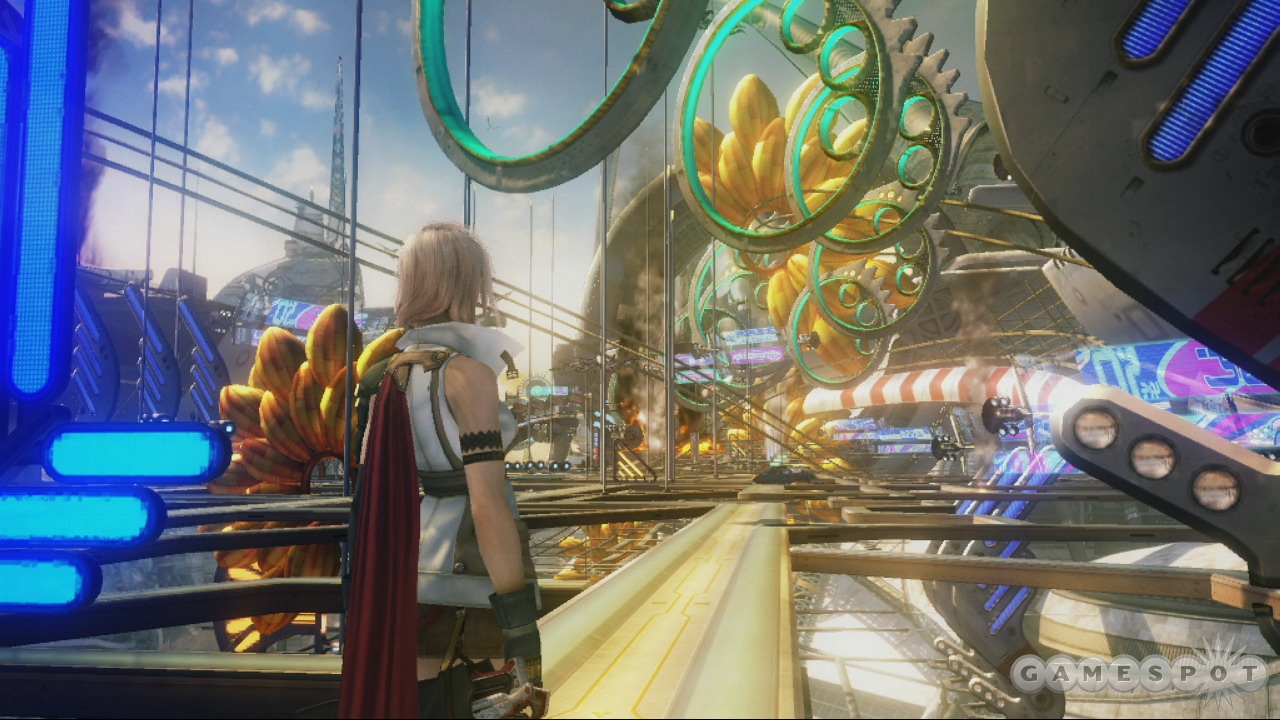
Seeking Inspiration from the Proper Places
I have often said that the games I adore the most are not those created by developers trying to give me what I wanted, but those I didn't know I wanted until I had them. Most good developers collect data based on how people play their games, focus test their creation in various stages of development, and ask for direct feedback from fans. Portal developer Valve famously collects information on when players die and engages in exhaustive playtesting to fine-tune their games, for instance, though it is ultimately up to creators to determine how to use this data, and when direct feedback must be filtered through the designer's vision, or just disregarded entirely. Try to make everyone happy, and you lose sight of your goals--and as former Civilization lead designer Jon Shafer once stated, "most failed games suffer a lack of focus."

On one hand, it's laudable that Final Fantasy XIII director Motomu Toriyama would incorporate ideas from successful games--but like other Japanese developers, Toriyama saw Call of Duty as the standard-setter, hoping to replicate its success without understanding what makes it so successful. Ace Combat director Kazutoki Kono rode the same wave with Ace Combat: Assault Horizon, producing a shallow game with lots of pizzazz but little passion. By chasing a trend, Kono sacrificed a vision he once believed in. Toriyama traveled a similar path on the way to Final Fantasy XIII, telling Tech Digest, "we're more interested in things such as first person shooters like Call of Duty. They give a better sense of tension on the battlefield. We sometimes draw inspiration from those sorts of games. It's not just RPGs but FPS titles that get us excited."
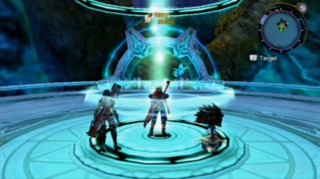
Meanwhile, even most first-person shooters fail to re-create the set-piece-focused style of Call of Duty in any meaningful way. Yet Toriyama was adamant that the best way to tell a great story is to lead the player down a narrow path. "When you look at most Western RPGs, they just dump you in a big open world, and let you do whatever you like... [It] becomes very difficult to tell a compelling story when you're given that much freedom," Toriyama told Xbox World 360 in 2010. This statement has proven a self-fulfilling prophecy: Lightning Returns is not only the most open of the XIII trilogy, but also tells the weakest story by a significant margin. However, talented game developers like Rockstar, Rocksteady, and Xenoblade Chronicles studio Monolith Soft have proven that a big world featuring seemingly endless freedom can also be home to a great story. The problem isn't that writers can't tell great stories in open worlds; the problem is that Toriyama can't.
With Final Fantasy XIII-2, Toriyama changed his approach. In 2011, he told Xbox Achievements, "our main goal with XIII-2 was listening to what people thought of XIII. A lot of people were unhappy, so we wanted to answer to those voices." He still admitted to finding some inspiration from Red Dead Redemption, referring to the "bit where you actually ride a horse," and again leading me to question whether he can identify what causes games like Red Dead to earn such accolades. "The fact that you can receive missions almost anywhere in the world" is not an innovation unique to that game, and it makes me wonder about the claustrophobic bubble within which Square Enix is crafting its games.
With Tetsuya Nomura at the helm of the Final Fantasy XV team, the series' overall direction is looking up. The game features a large world traversable in a variety of ways--airship, chocobo, and so forth--though it also harbors shooter elements, though so little is known about these elements that it's hard to guess at just how prominent they might be. I hope, however, that Nomura trusts in his own concepts, and is less concerned with casting Final Fantasy in the Call of Duty mold. At the very least, I hope that if Nomura finds inspiration in Western games, he finds it in games that allow Final Fantasy to mature. I don't want Square to create the game they think we want; I want them to create the game we didn't know we couldn't live without until we have it.
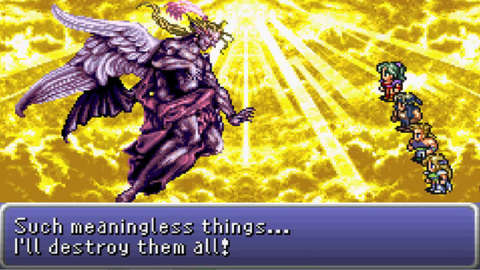
Creating Relatable Characters
You could argue that Final Fantasy XIII's story was no stunning victory, as much as I personally enjoyed it. I liked Lightning then, but she did not carry the game on her own, and I didn't much miss her in Final Fantasy XIII-2. For some reason, however, Square was banking on Lightning's ability to carry a game on her own, so much so that Toriyama stripped away the party dynamic completely in Lightning Returns. And without an ensemble for her to interact with, Lightning was bled of her appeal, left to mope on her own while reciting repetitive dialogue that turned simple situations into tangled webs of metaphors and religious allegories. Harry Potter had Ron and Hermione to guide him through his relatable turmoil; Luke Skywalker had Han Solo, C-3PO, and other companions to give context to his normalcy. Lightning Returns is like a disappointing sitcom spinoff--the Joanie Loves Chachi to Final Fantasy XIII's Happy Days. Without the proper group of friends to support them, some characters simply wither.
I wouldn't call Harry Potter or Luke Skywalker weak characters: they grounded us in strange new worlds. They showed identifiable growth, and we could empathize with them because their situations were familiar, even when the worlds they inhabited were not. Harry was a savior, certainly, but he was also a gawky kid coming to grips with a cruel professor and bullying schoolmates. Luke Skywalker wanted to make something of himself--to break free from a mundane life and see the galaxy beyond a simple farm. Lightning wants to see Serah. That's it. That's what she wanted in Final Fantasy XIII, and again in Lightning Returns. In a world filled with unfamiliar concepts with funny names like fal'Cie, l'Cie, and Cie'th, we need drama we can be invested in. And drama results when the plot follows from the needs and desires of the characters, rather than the characters serving as plot points first and foremost.
Perhaps this is why I appreciate Final Fantasy XII as the underpraised gem of the series: it was about people and politics, rather than gods and lifestreams. And consider the widely beloved Final Fantasy VI. It wasn't about saving the world, not really. In fact, the world is destroyed halfway through the game, in one of the great unexpected developments in role-playing history. The aspects of the story that I remember most fondly aren't the plot points, however, but the moments that defined and deepened the characters. Shadow may seem as stoic as Lightning, but his stoicism hid a touching backstory that you uncover through his dreams. Shadow masked his pain; Lightning's pain is front and center, and nothing is masked. Her quietness veils… more quietness.
In a world filled with unfamiliar concepts with funny names like fal'Cie, l'Cie, and Cie'th, we need drama we can be invested in.

Toriyama insists that Lightning is a well-loved heroine. He recently told Siliconera, "we know that Lightning is an extremely popular character, even when compared to other Final Fantasy characters." She's already appeared in Final Fantasy XIV: A Realm Reborn--no surprise, given that she makes a remark in Lightning Returns that she'll have to visit Eorzea at some point in the future. (I'm sure that the story gymnastics Square performed to justify the crossover are exhausting.) I'm not sure where Toriyama gets his figures from, and perhaps Square's market research has led him to that conclusion. My guess, however, is that Toriyama himself is so enamored of Lightning that he’s unwilling to leave the character behind, even if her presence is at the detriment of the game.
And so now, attention turns to Final Fantasy XV's Noctis Lucis Caelum, who must break free from the shackles of cliche, and the shackles of a game designer’s infatuation with a digital avatar. The time has passed when we could accept the Moeblob (the chirpy girl with no other definable character trait), the orphaned hero, and the monosyllabic brooder as the best ensemble cast available. It's time to create people, not "types."
At very least, I crave a good villain, a strong foil for the hero's willing (or unwilling) sense of duty. Perhaps it's no wonder that I think Caius Ballad is the best character of the XIII trilogy; he's the logical evolution of the tortured malefactor best personified by Final Fantasy VII's Sephiroth. Final Fantasy XIII did not reveal its villain until well into the game, and Lightning Returns doesn't feature an omnipresent villain in its usual sense. If it provides a protagonist worth rooting for and a villain we love to hate--or even legitimately love--Final Fantasy XV could be an important step in Final Fantasy's evolution.
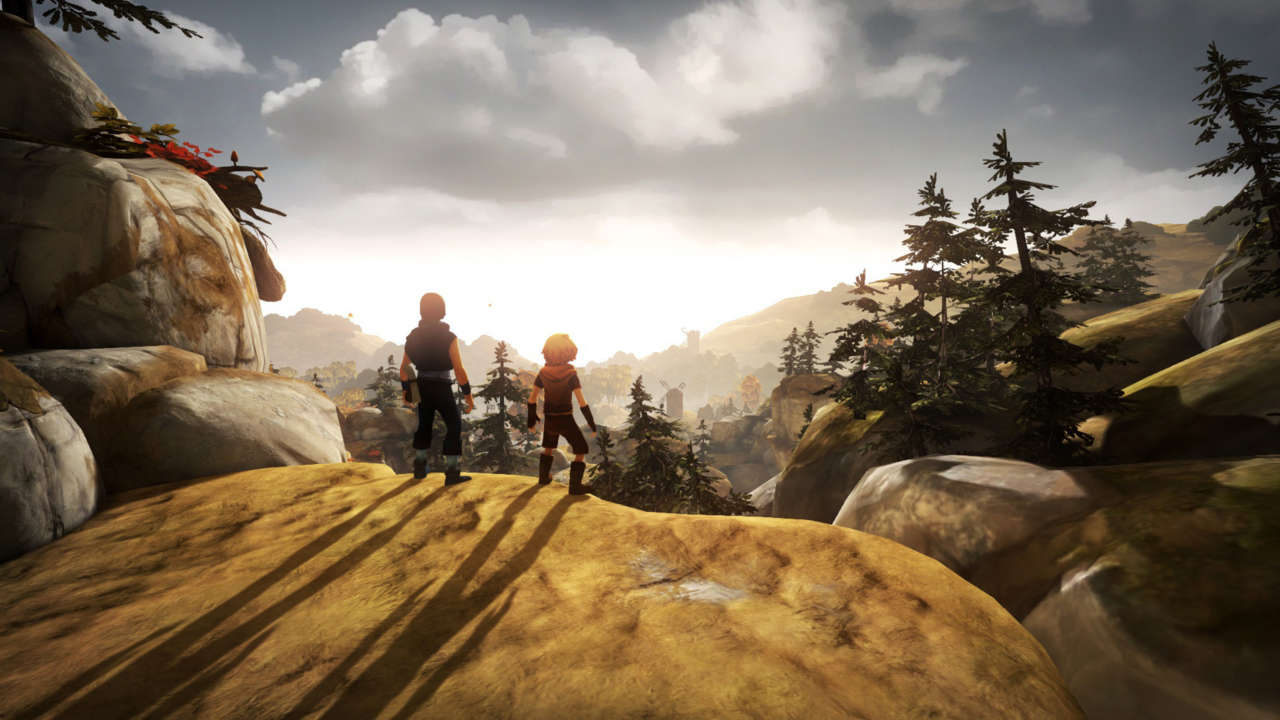
Reestablishing an Identity
You may have heard that Bravely Default is the best Final Fantasy games in years, though it is not, in fact, part of the Final Fantasy brand.
Why not?
Bravely Default began as a Final Fantasy game, after all. According to Bravely Default producer Tomoya Asanowe, “originally, in the early planning stages, [we] were looking at this project as a sequel to Final Fantasy: The 4 Heroes of Light.” Eventually, however, a new brand was born; says Asanowe, "we have also incorporated lots of interesting new elements that have not been seen in games in that series up till now."

I question, however, that introducing interesting new elements required abandoning the Final Fantasy brand. Each new Final Fantasy game introduces new elements, from novel combat systems, to wholly new worlds, to new methods of character advancement. Aspects I have often associated with Final Fantasy--full adventuring parties, for instance--haven’t appeared in every mainline entry, leaving few defining characteristics. Chocobos. Moogles. The victory theme. The arpeggiated main theme. The spell names. Beyond these factors, what makes a Final Fantasy game what it is? It strikes me that Square Enix has retained what matters least for Final Fantasy’s identity, and has discarded what matters most. Perhaps it’s heresy to say such a thing, but I’d gladly give up moogles if it means being rewarded with a tonally consistent role-playing game. I’d never miss chocobos if I could explore a unique world with a group of adventurers that break free of ancient archetypes.
Reestablishing the Final Fantasy identity isn’t just a matter of copying past successes, however. It's easy to look back on previous Final Fantasy games and cite the ways in which they are superior to the series' recent outings. I have personally mentioned other Final Fantasies as examples of properly-delivered tropes, but if Final Fantasy is to grow, Square Enix must be willing to break free of the past and prove its ability to discern between innovation and gimmickry.
The problem isn't that writers can't tell great stories in open worlds; the problem is that Toriyama can't.
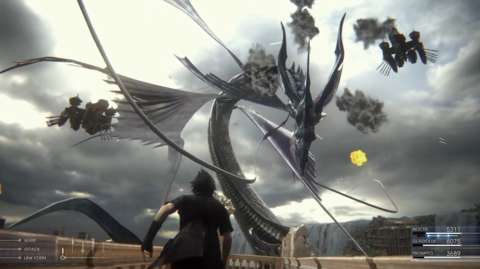
What is that difference? It's the difference between Final Fantasy IV's active time battles, and Lightning Returns' countdown clock. It's the difference between Final Fantasy III's job system, and Final Fantasy XIII's crystarium. Innovations give us new ways to play games, and change the manner with which the game's systems unfold. Gimmicks introduce change for change's sake, without regard for how that change impacts the elements around it. In some ways, it comes back to Jon Shafer's call for focus: innovations are often solutions to problems or avenues for delivering new ideas, while gimmicks are bolted on whether or not they complement the game as a whole. The former stems from great focus; the latter, from lack thereof.
Toriyama’s view regarding what makes a Final Fantasy game is relatively clear, at least: it must be pretty, above all other concerns. As he told Tech Digest, “We set out to create something with a greater visual impact, something more spectacular that is only possible when you separate the field and the battle data.” By now, however, it’s abundantly clear that being pretty is not an identity in and of itself. Here’s hoping that Final Fantasy XV is pretty--but that the beauty doesn’t come at the expense of the wonder of exploring a new world, and at the expense of the deep systems that make role-playing games so exciting to play.

